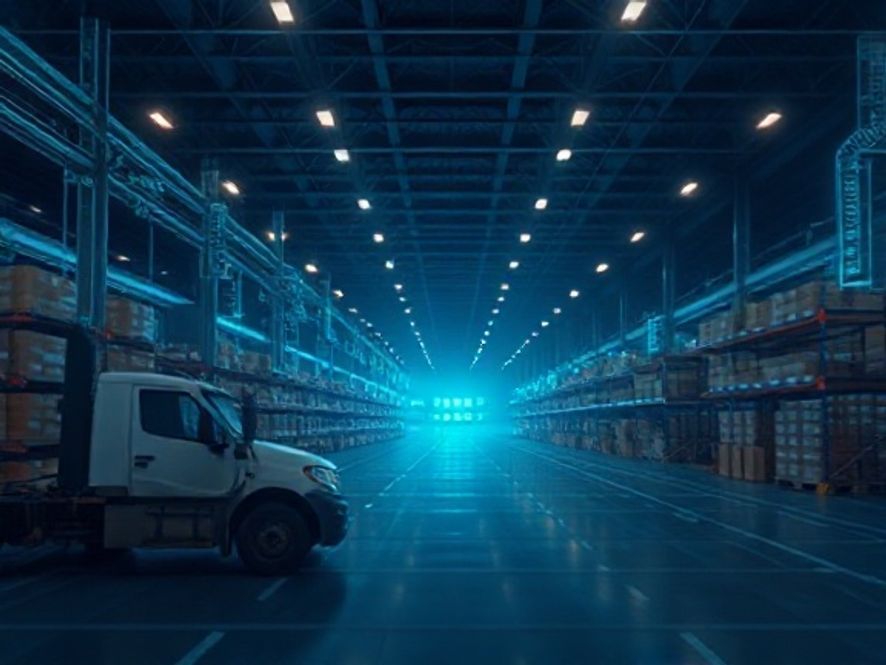AI for Logistics: The Definitive Glossary
Artificial Intelligence (AI) for logistics integrates advanced technologies to optimize supply chain management, enhance operational efficiency, and reduce costs. This glossary explores the multifaceted applications of AI in logistics, providing students, professionals, and beginners with a comprehensive understanding of its significance in today’s digital economy.
Understanding AI for Logistics
At its core, AI for Logistics refers to the application of artificial intelligence technologies in managing logistics and supply chain processes. This encompasses a wide range of activities, including transportation, warehousing, inventory management, and order fulfillment. AI leverages algorithms and data analytics to improve decision-making, predict demand, and streamline operations.
Key Technologies in AI for Logistics
Several core technologies drive AI innovations in logistics:
- Machine Learning: Enables systems to learn from data, improving accuracy over time.
- Natural Language Processing (NLP): Allows machines to understand and respond to human language.
- Robotics: Automates physical tasks, enhancing efficiency in warehouses.
- Data Analytics: Provides insights through the analysis of large datasets, aiding strategic decision-making.
Real-World Applications of AI for Logistics
AI is transforming logistics in various ways:
- Route Optimization: AI algorithms analyze traffic patterns and weather data to determine the most efficient delivery routes, reducing fuel costs and improving delivery times.
- Inventory Management: Predictive analytics help companies maintain optimal stock levels, reducing holding costs while ensuring product availability.
- Warehouse Automation: Robotics and AI systems streamline picking and packing processes, increasing order fulfillment speed and accuracy.
- Demand Forecasting: AI tools analyze historical sales data to forecast future demand, allowing businesses to plan better.
Benefits of Implementing AI in Logistics
Integrating AI into logistics offers numerous advantages:
- Increased Efficiency: Automation of repetitive tasks allows human workers to focus on more strategic initiatives.
- Cost Reduction: Optimized routes and inventory management lead to significant savings.
- Enhanced Customer Experience: Faster deliveries and accurate order tracking improve customer satisfaction.
- Data-Driven Insights: Access to real-time data promotes informed decision-making and strategic planning.
Challenges in Adopting AI for Logistics
While the benefits are compelling, companies face challenges when adopting AI:
- Integration Complexity: Merging AI systems with existing logistics frameworks can be technically challenging.
- Data Quality: AI relies on high-quality data; poor data can lead to inaccurate predictions.
- Skill Gap: Organizations may lack personnel with the necessary skills to manage AI systems effectively.
How to Implement AI for Logistics in Daily Operations
To effectively utilize AI for Logistics, businesses can follow these steps:
- Identify Specific Needs: Assess logistics operations to determine areas that could benefit from AI.
- Invest in Technology: Choose AI tools that align with business goals and integrate seamlessly with existing systems.
- Train Staff: Ensure that employees are trained to use new AI tools to their full potential.
- Monitor and Adjust: Continuously evaluate AI performance and make necessary adjustments to improve outcomes.
Related Concepts in AI and Logistics
Understanding AI for Logistics also involves familiarity with related concepts:
- Supply Chain Management (SCM): The overarching framework within which logistics operates.
- Big Data: Large volumes of data that AI analyzes to improve logistics outcomes.
- Internet of Things (IoT): Connected devices that provide real-time data for logistics optimization.
- Blockchain Technology: Enhances transparency and security within the supply chain.
Conclusion: The Future of AI in Logistics
As the logistics industry continues to evolve, the integration of AI will play a critical role in shaping its future. By leveraging AI technologies, businesses can enhance efficiency, reduce costs, and improve customer satisfaction. Embracing these innovations is not just a competitive advantage; it is essential for survival in an increasingly complex and fast-paced market.
Reflect on how you can implement AI strategies in your logistics operations and stay ahead in the game. The potential is vast, and the time to act is now!









